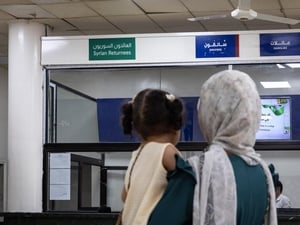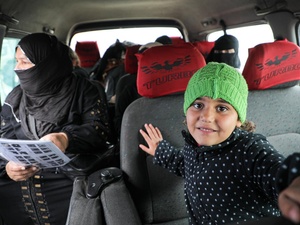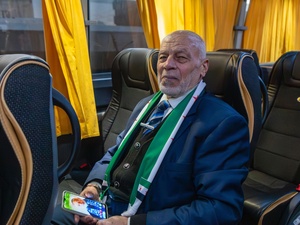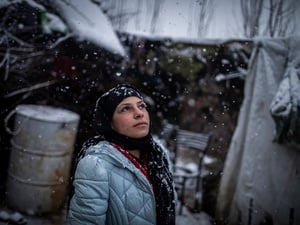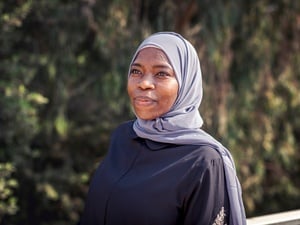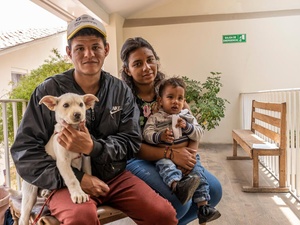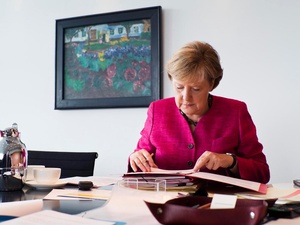Shaken by war, Syrian children start over at German school
Shaken by war, Syrian children start over at German school

Syrian 12-year old Leen (front) concentrates on the board during a language class 563223fb6
NEUBRANDENBURG, Germany, Oct 29 (UNHCR) - Leen flings open the school doors after her German language class and runs out, clearly delighting in her new surroundings despite a cold rush of autumn air.
"I like being here," said Leen, gesturing around her. "I have new friends, a good school and… I'm safe." Bundled up in a sweater and gloves, she laughed and cycled off to a dance class.
A 12-year-old girl from Damascus, she and her older brother Yousef are enjoying their first term at 'Am Lindetal' school in this town in northeast Germany after surviving a recent harrowing journey from war-ravaged Syria.
The family had fled Damascus. They arrived in Germany two months ago, and were assigned by the government to live in Neubrandenburg.
Leen is among the so-called "lost generation" of children who have missed out on schooling since Syria's civil war erupted in 2011. She has joined 70 young refugees and asylum- seekers starting over at a school in Neubrandenburg, hoping to catch up in classes.
"Syrians prize education highly but worsening conditions for refugees in Syria's neighbouring countries have a devastating impact on the education of children," said Martin Rentsch, from UNHCR, which stresses the importance of integration. "Hundreds of thousands of refugee children miss out on school and we are on the verge of producing a lost generation."
Leading them in their first steps toward integration is David Tietz, who teaches a beginner's class in German. The interactive classes run for four hours and are designed to turn young asylum seekers from countries including Afghanistan, Syria and Ukraine into fluent German speakers. Over a two-year period, it is hoped they will integrate fully into the national curriculum.
Many of the asylum- seekers arriving in Germany this year are being placed in towns like Neubrandenburg. Learning the German language and continuing with their education is key.
The brutal conflict raging across Syria means that many of the children have suffered physical and mental trauma. A large number have missed out on school since the war began in 2011, leaving them in an educational limbo, struggling to envisage a stable future, experts said.
"People from conflict zones may have arrived to safety, but their memories still haunt them," UNHCR's Martin Rentsch said. "UNHCR is advocating for a state-financed trauma treatment for persons in need of international protection."
Leen and Yousef are among those dealing with trauma. Wounded by shrapnel during a bombardment, Yousef was prevented from going to school in Syria. Both he and Leen suffered from recurring nightmares.
Driven from their homes, their livelihoods gone, many of the youngsters' parents have also struggled to adapt to their new life in Germany.
Teachers at the 'Am Lindetal' school, who exercise a 'zero-tolerance' policy when it comes to hate speech, are determined that the parents or adult asylum-seekers should also get involved in the school, in a bid to create the sense that they belong to the community.
One way has been to draft them as teachers. For instance, Ismael, an Iranian exile, was a civil engineer at home, and now teaches mathematics and physics classes. "It helps occupy my mind, and gives structure to my life," he said.
"Asylum-seeking parents don't often work during the asylum process, and so sit at home, or in their reception centre and get depressed," explained Antje Hofert, a German language teacher who studied in Jordan. "Our schools should also be social centres, and parents should be participating too," she added.
Leen and Yousef's mother, Marwa, was a medical volunteer when the war broke out in Syria in 2011. She studied English when she attended school in Syria, and will be teaching youngsters in Neubrandenburg.
By Rebecca Murray in Neubrandenburg


